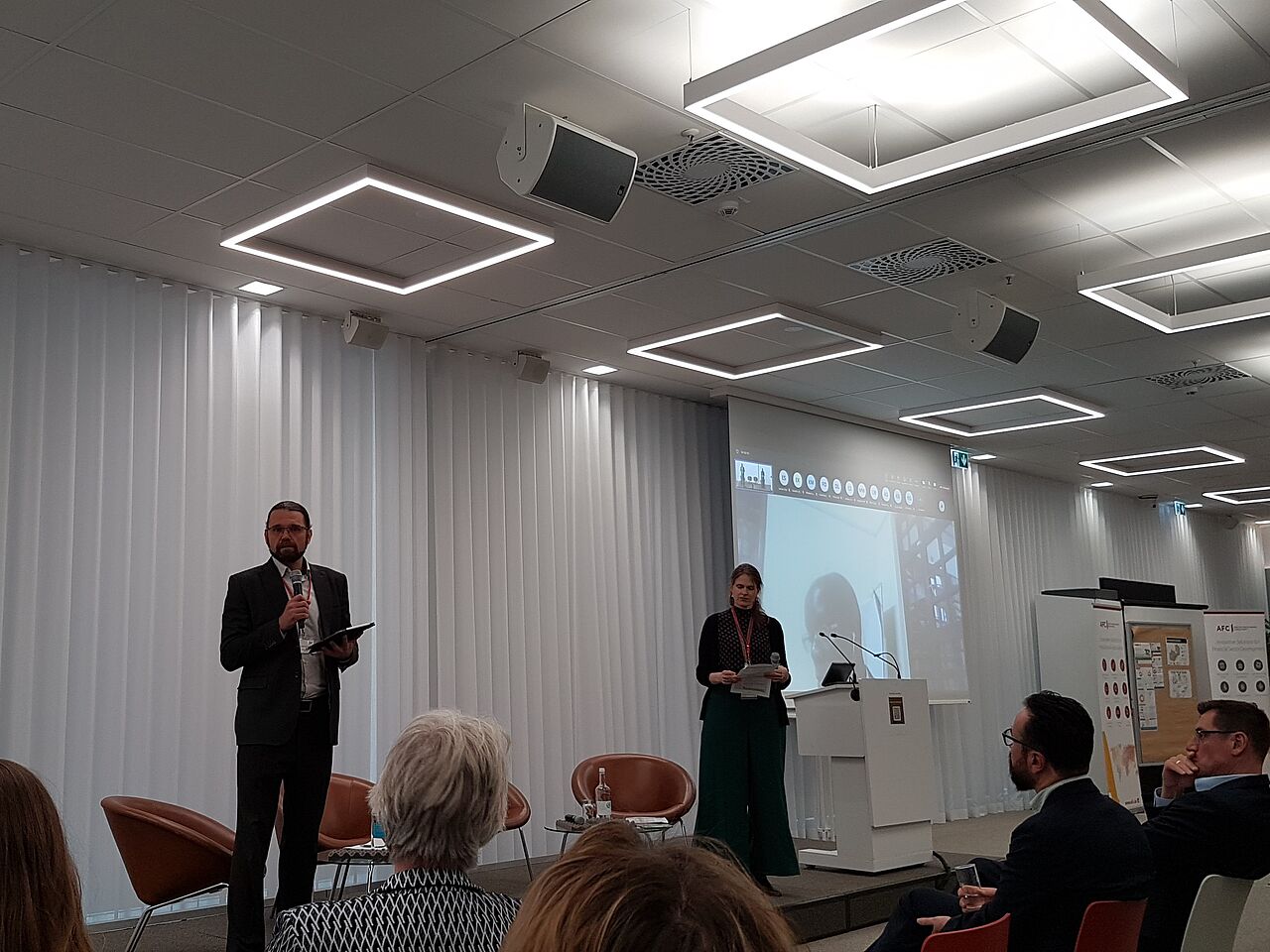Anniversary meeting of the GIZ Rural Development Working Group

The Rural Development Working Group has been held regularly since 1995. On the occasion of the 100th meeting on Mar 21, 2023, the Deutsche Gesellschaft für Internationale Zusammenarbeit (GIZ) GmbH as organiser of the FAK and the FAK members from the German development cooperation consulting firms had invited to Eschborn (in presence and online). The programme, which had been jointly organised by GIZ, IAK Agrar Consulting GmbH (IAK), GOPA Consulting Group, Unique Land Use and AFC Agriculture and Finance Consultants GmbH, first included a presentation by the members of the technical working group – including IAK – each with their own market stand.
Jochen Renger, Head of Division of Climate Change, Rural Development, and Infrastructure of the GIZ Sectoral Department, then welcomed the participants and introduced the upcoming programme items. The symposium was officially opened by Sebastian Lesch, Head of the Division for Sustainable Agricultural Value Chains, International Agricultural Policy, Agriculture, Rural Development and Innovation at the German Federal Ministry for Economic Cooperation and Development (BMZ), with an overview of BMZ's priorities in rural development.
The keynote speech was given by PD Dr. Alisher Mirzabaev, Acting Professor of Production Economics at the Institute of Food and Resource Economics (ILR) at the University of Bonn and, among other things, a member of the Scientific Advisory Board of the Economics of Land Degradation (ELD) Initiative and the Advisory Board of Welthungerhilfe, on the topic of "Rural transformation and development: from concepts to action".
Mr Renger and Dr Mirzabaev then also took part in the panel discussion, joined online by Dee Punungwe and Hannington Owegi from Malawi and Kenya respectively. Ms Punungwe is Design and Operations Lead of GGEM Farming, a Malawian social enterprise, and also a facilitator, trainer and consultant. Mr Owegi is Secretary General of the Participatory Ecological Land Use Management Association (PELUM Association), a regional network of over 280 civil society organisations in 12 countries in Eastern and Southern Africa. He works in Kampala/Uganda on national, regional and international projects for food security and livelihoods.
The aim of the panel discussion, which was moderated by Julia Iversen, Head of the GIZ Regional Office North, and Sven Gehlhaar, Managing Director of IAK, was to identify the most important factors for a successful transformation of rural areas and, on this basis, to reflect on the design of an "ideal" project. The discussion was controversial and extremely enriching. Basically, however, all panel participants agreed that a transformation of rural areas can neither be achieved effectively and efficiently through individual projects nor with current approaches. It is therefore necessary to think more disruptively about new ways. All participants made good use of the opportunity for intensive discussions at a reception in the evening.
The next meeting of the Rural Development Working Group on 19/20 June will be hosted by IAK in Leipzig.
